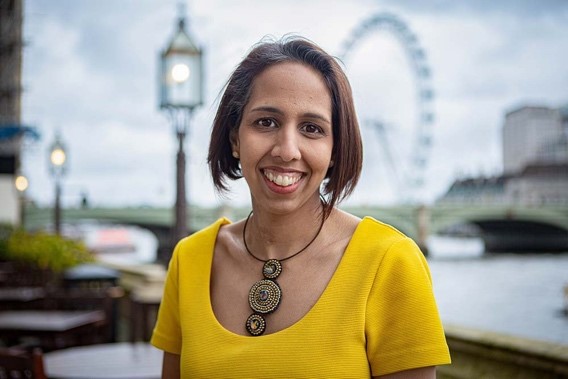By now, most people have heard about the possible new law from our Prime Minister, Rishi Sunak, about making the study of maths compulsory until the age of 18. This would be past GCSE level, which is what it is at now. Rishi Sunak argues that he wants to bring in this change to ‘tackle difficulties around numeracy in the UK and for children to be able to grow up to work in jobs using data and numbers’ (BBC).
He says, ‘In a world where data is everywhere, and statistics underpin every job, letting our children out into the world without those skills is letting our children down.’
The government wants to expand pre-existing qualifications, rather than make A Level Maths compulsory.


This could benefit the banks, jobs in IT, maths teaching jobs (once people have got the degree) and even things like engineering.
However, with maths teacher numbers already lower than the government’s annual aim, this will be difficult.
We asked Mr Heppleston, Head of Mathematics in the Girls’ Division, his opinion on the government’s new idea. He commented that ‘I think there’s going to be an issue with staffing it – I think already throughout the country there’s a lot of maths teachers that might not necessarily have a maths degree, so I don’t know where he [Rishi Sunak] intends on getting the extra teachers from.’ This very practical concern seems an important consideration when thinking about the successful implementation of this idea.
With low numbers of maths teachers, maybe this plan will not be able to take place, or there would have to be huge influx of maths teachers all across the country. This would take a lot of planning as new potential teachers would need to be recruited, trained and persuaded to stay in the profession long term.
Lots of people think that people taking more maths when they don’t enjoy it or struggle with it anyway could be difficult.
Munira Wilson from the Liberal Democrats says that ‘Too many children are being left behind when it comes to maths and that happens well before they reach 16.’
More should be done before pupils get to sixteen, the government could focus on providing more assistance for those struggling in this area. Some people, however, also struggle with maths due to Dyscalculia.

Mrs Wright, the Head of Learning Support in GD, agrees. In a similar statement (to Mrs Wilson’s) about Dyscalculia, a learning difficulty that effects a person’s maths ability, she notes that ‘…if you were to force those pupils who experience Dyscalculia, or those that really struggle with maths into having to spend more time trying to study it, that would seem really unfair and unjust, wouldn’t it?’
Studying maths to GCSE is difficult, but forcing pupils to continue maths beyond that could be seen as a form of discrimination.
The issue may not be with the amount of maths taught, be it five years or seven years, but the quality of the teaching. With better teachers nationally at all Key Stages, or perhaps different methods tailored to the learning needs of the pupil, perhaps Sunak could provide an infrastructure that would have a lasting impact on numeracy skills in the UK.

We thought we would ask pupils what they thought of this idea, as they would be the ones affected by this policy. Several interviewees said that they also disagree with the proposal. A girl in Year Eight said that she doesn’t want to continue it until she is eighteen, as she dislikes it.The dislike of maths could affect someone’s performance and the amount of time they could focus on their other subjects. Claudia Williams from Year Ten says ‘…it could lower people’s overall grades like from straight As to a C if they aren’t good at it.’ Would this affect University or future job applications?
This could affect pupils’ mental health and stress levels, as well as the very real possibility that the extra subject will add pressure to students, having to learn extra information. It may also affect results in subjects that students want to carry on with in their careers or at university.
Rukaiyya Anas in Y13 thinks that it could affect A Level courses. She says, ‘I feel like students at A Level are already so overwhelmed with the demands of their subjects… so if he [Rishi Sunak] wanted a whole other subject for them to do, or if they had to replace one of their subjects and do maths instead, even though they didn’t want to, it could really effect their overall performance.’
As Rukaiyya’s points show, the potential detrimental impact of this new initiative could outweigh its benefits.

Mrs Wright went on to say, ‘If you really struggled studying maths at GCSE, but you’ve done really well in your humanities, then you know, maths may not be a strength for you. If you’re now going to force those students to study it at A Level, you can see why there might be a fear that that would put real pressure on students.’
There are lots of concerns that this may cause added pressure, but are there any positive aspects to this proposal?

Mrs Wright commented that if the maths was ‘life maths’, (that is about how to pay mortgages and repay loans for example) then it could be beneficial to students. However, she feels that it should start being taught before pupils finish Year Eleven.
In the Girls’ Division this could possibly be introduced as part of our THRIVE curriculum. Then people can learn about ‘life maths’, not just in maths lessons.
Rukaiyya Anas made a similar point, saying how learning maths about how to calculate interest to help us understand more about the cost of loan repayments and the impact of variable tax rates would be beneficial to all.
Overall, most people seemed to disagree with making maths compulsory at A Level. There are a few possible benefits, however most are those which could be started earlier on anyway.
My research indicates that this will not be a very successful policy, as many people are already struggling with maths, and to add to this pressure could be detrimental to mental health and stress levels.
By Abigail Leaper
Related Websites:
https://www.bbc.co.uk/news/blogs-the-papers-64158653 – Newspapers’ headlines on the issue.
https://www.bbc.co.uk/newsround/64152335 – BBC Newsround’s description and take on the matter.
https://boltonschool-my.sharepoint.com/:w:/g/personal/g24112_boltonschool_org_uk/EaQ-b0YrX21KvOVz35bH-bYBxXvTkez2nw_ExNBII0-Q2w – To see the full interview transcripts, click here.